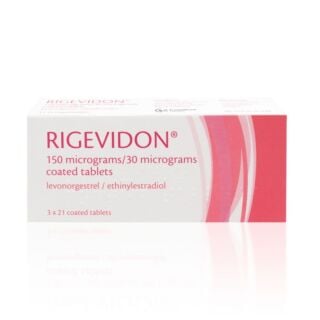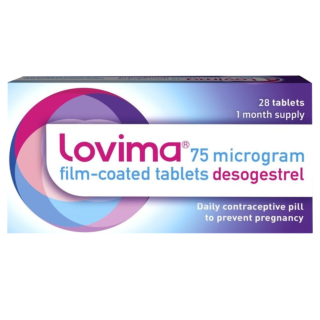How to find the one: contraceptive edition

Finding the right partner can be a long and arduous process, and sometimes you have to kiss a few frogs to find your prince or princess charming.
With the amount of contraceptives available - from those you have to remember to take or wear, to methods that are a bit more invasive - the search to find the right match can feel somewhat similar!
You may have to try a few different types of contraceptives to find the one that agrees with your body and your lifestyle, that’s why we’ve written this guide to make your search a little easier.
Choosing the right contraceptive
Deciding which type of contraception is right for you will depend on your age, gender, medical history, and mostly, personal preference - what’s right for one person may not be right for another.
You might like what you see in your chosen contraceptive’s profile - lighter periods, for example - but certain contraceptives can cause side effects in some people.
If this sounds like you, it might be time to play the field until you find your contraceptive match; don’t settle for something that doesn’t agree with your body.
Before we start, it’s important to note that while all contraceptives are great fighters against any unplanned pregnancies, many of them don't help when it comes to facing a sexually transmitted infection (STI).
Remember, nothing can protect you against an STI like a condom can.
Contraceptive pill
The contraceptive pill, otherwise known as ‘the pill’, ‘birth control pill’ or ‘oral contraceptive’ is a small tablet that you have to remember to take each day to prevent pregnancy.
There are two types of contraceptive pills: the combined pill and the progestogen-only pill - or the ‘mini-pill’ as it’s sometimes known - but we’ll go into more detail about the differences later on.
If taken correctly (meaning you don’t forget to take a pill or you don’t have a bout of vomiting or diarrhoea that can reduce the pill’s effectiveness) it’s over 99% effective in preventing pregnancy.
Certain contraceptive pills can do more than just stop unwanted pregnancies, too - they can also regulate your periods and make them lighter, in addition to controlling acne and symptoms of PMS.
Combined pill
You might recognise the combined pill by some of its brand names: Yasmin, Microgynon, Rigevidon, Logynon and Ovranette.
The combined pill contains artificial versions of female hormones (oestrogen and progesterone) which the ovaries produce naturally. These work together by thickening the mucus in the neck of the womb and thinning the lining of the womb so it’s harder for sperm to reach the egg.
The majority of combined pills are monophasic and work around a 28 day cycle - you’ll take a pill each day for 21 days followed by a 7 day break. (Don’t worry, you’ll still be protected from pregnancy during this break!)
During this break you will bleed, but this bleed tends to be lighter than a natural period, so if you’ve struggled with heavy, painful periods, this might be to some relief.
We know, periods can be super inconvenient, especially if you’ve got a special event planned. That’s why some women choose to take the combined pill continuously without a break or have a 4 day break instead of a 7. While this is perfectly safe for most women, it may not be suitable for everyone, so make sure to ask your doctor first.
It’s also important to note that some pills work slightly differently - like phasic 21-day pills which contain differing amounts of hormones and must be taken in the right order, and every day (ED) pills which contain 7 inactive pills as an alternative to a 7 day break.
Always read the patient information leaflet carefully and speak to your doctor to make sure you’re taking your pill correctly.
Progestogen-only pill
As its name suggests, the progestogen-only pill contains just progestogen, unlike the combined pill which also contains oestrogen.
You’ll take this pill everyday, with no gap between packets, so no need to keep track of when your next 7 day break is!
It’s also available over-the-counter (look out for Hana and Lovima), meaning you won’t need a prescription from your doctor or prescribing pharmacist.
This pill may be a good option if you’re unable to take birth control containing oestrogen or you’re over the age of 35 and smoke. However, you won’t be able to control your periods in the same way as the combined pill and side effects like acne might be more likely.
It’s important to note that there are two types of progestogen-only pills: the 3-hour progestogen-only pill, which must be taken within the same 3 hours each day, and the 12-hour progestogen-only pill, which must be taken within the same 12 hours each day.
Make sure you choose a convenient time each day to take your pill - you don’t want to choose 6am if you like a lie-in on your weekends!
So, if the contraceptive pill seems like just your type, why not visit our clinic today? Just fill out a quick and easy questionnaire and one of our friendly prescribers will determine which pill could be the right match for you.
Not clicking? No spark? Not to worry - keep reading to discover more potential contraceptive suitors waiting to protect you against any nasty surprises.
Condoms
Condoms are a barrier method of contraception and the only one that’ll protect you against any unplanned pregnancies and STIs.
Even if you’re using another form of contraceptive, such as the pill or the implant, it’s always best to wear a condom to protect yourself, especially if you're with a new partner. If used correctly, male condoms are 98% effective at preventing pregnancy, while female condoms are 95% effective.
We know, condoms can be a mood-killer for some people, but there are ways to make putting on a condom an enjoyable part of sex, you just need to be creative!
While it is possible for condoms to slip off or rip during sex, if you find the idea of hormonal contraceptive options unappealing, a condom is a great and very safe choice.
Vaginal ring
A vaginal ring is a small, soft, plastic ring that you place inside of your vagina to prevent pregnancy.
Similar to the combined pill, the vaginal ring releases the same hormones (oestrogen and progestogen) into the bloodstream. If used correctly, the vaginal ring is more than 99% effective, and unlike the pill, it protects you even if you experience vomiting or diarrhoea.
The ring should stay in your body for 21 days then be taken out for a 7 day break; it isn’t as permanent as the implant or coil, but it’s long-lasting enough so you don’t have to think about it each day or each time you have sex.
Like all hormonal contraceptives, some women may experience side effects when using the vaginal ring, like breakthrough bleeding or a decreased sex drive, but these won’t effect everyone. It can also slip out on its own during or after sex, but it’s easily put back in.
Contraceptive patch
The contraceptive patch is a small, sticky patch that you wear on your skin to prevent pregnancy. It works by releasing hormones through the skin and into the bloodstream, and when it’s used correctly, it’s more than 99% effective.
Each patch lasts for 1 week; you change the patch every week for three weeks, then you’ll have a week without the patch where you’ll have a withdrawal bleed.
The patch is very sticky and shouldn’t come off in the bath, shower or swimming pool - if it does come off, all you’ll need to do is apply a fresh one.
However, the patch isn’t for everyone. Certain people may dislike the visibility of the patch and it may irritate sensitive skin, especially after a long-period of use.
But the contraceptive patch can help if you’ve got painful, heavy periods, and it’s still effective if you have vomiting or diarrhoea, too.

Contraceptive injection
The contraceptive injection releases progestogen into your bloodstream to prevent pregnancy. How long these injections last depends on the type you’re having - some can last up to 13 weeks, while others last up to 8 weeks.
If used correctly (meaning you don’t forget to get jabbed again once the effectiveness has worn off) the contraceptive injection is more than 99% effective at preventing pregnancy.
It’s a good choice for women who find it difficult to remember to take a pill at the same time each day, for those who take other medication that can be affected by the pill, and those who can’t take birth control containing oestrogen.
However, if you plan on having a baby in the near future, it’s important to bear in mind that it can take up to 1 year for your fertility to return to normal after the contraceptive injection.
Contraceptive implant
The contraceptive implant is a long-term method of contraception that’s placed under the skin in your upper arm by a doctor or nurse. Like the injection, the implant releases progestogen into your bloodstream to prevent pregnancy, and it’s more than 99% effective.
It lasts for up to three years; however, you can easily get it removed if you’re experiencing side effects or you want to try for a baby, for example. Your fertility will return very quickly after the implant has been removed, unlike the injection.
It’s useful for women who can’t take birth control containing oestrogen and those who find it difficult to remember to take their pill at the same time each day. Once it’s in, you quite literally don’t have to think about it for years!
Nonetheless, it can affect certain medicines and impact your periods, making them heavier, longer, or even making them stop altogether, so always discuss the advantages and disadvantages with your doctor or nurse first.
IUD & IUS
Although the IUD (intrauterine device or coil) and the IUS (intrauterine system or hormonal coil) are similar in terms of placement, how they stop pregnancy from happening is different.
The IUD releases copper into the womb to alter the cervical mucus, making it more difficult for sperm to reach the egg. Whereas the IUS releases progestogen into the womb to prevent pregnancy.
To fit an IUD or IUS, the vagina is held open (like it is when you have a smear test) and the coil is inserted through the cervix and into the womb. Some women may find this uncomfortable or painful, which is something to bear in mind.
Both are long-term options for contraception: the IUS can last for 3-5 years depending on the brand, and the IUD lasts for 5-10 years. If you choose to have the IUD or IUS removed, you’re able to become pregnant straight away.
There are no hormonal side effects with the IUD, such as acne, headaches or breast tenderness, but you might find your periods become heavier, longer and more painful.
The IUS is safe to use if you’re breastfeeding, isn’t affected by other medicines and your periods may become lighter, shorter, less painful or stop altogether. However, certain people may experience hormonal side effects and mood changes with the IUS.

Ineffective contraception measures
We’ve talked about all of the noteworthy contraceptive candidates, but let’s move on to the ineffective, red-flag ‘contraceptive’ methods.
Contrary to popular belief, none of these work effectively to prevent pregnancy and should never be relied upon!
Withdrawal method
The withdrawal method or the ‘pull out method’ isn’t a form of contraception.
It involves taking your penis out of your partner’s vagina before ejaculating - however, sperm can be released before ejaculation and cause pregnancy.
Take our word for it and steer clear of this method of ‘contraception’ - it isn’t your type.
Natural family planning
Natural family planning is very complex - it requires your utmost dedication and consistency, and even then, it won’t necessarily prevent pregnancy.
You would need to be aware of the length of your menstrual cycle, take daily readings of your body temperature and mark changes to your cervical mucus to determine when you are fertile and when you aren’t.
These fertility signals can be very slight and can change with illness, stress and travel.
Most women will struggle to record the signs and symptoms of fertility correctly unless they’ve been taught by a fertility awareness teacher.
Natural family planning may be a good option if you’re trying to become pregnant, but it’s certainly not recommended as a long-term contraceptive solution.
Don’t be tempted with natural family planning’s attractive no-chemical and no-side effect charm - if you dislike the idea of putting chemicals into your body, using a condom could be an ideal option for you.

We hope this guide has been an eye-opener to the contraceptive market, and remember, if the first contraceptive you try doesn’t work for you, don’t give up - get back out there!
There are plenty more fish in the sea when it comes to contraceptives that are waiting to sweep you to sex-safety.
So, show your partner some love this Valentine’s Day - just don’t break-up with your chosen contraceptive in the process.
If you need any more information about contraception, visit the NHS or the Sexwise website.
Image Credit: People illustrations by Storyset










